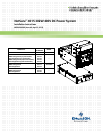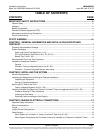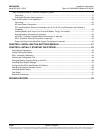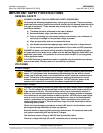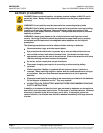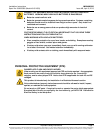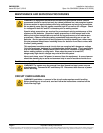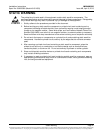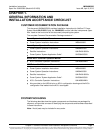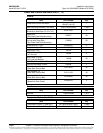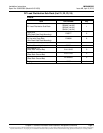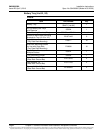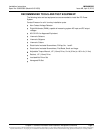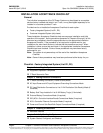
IM584000300 Installation Instructions
Issue AB, April 3, 2013 Spec. No. 584000300 (Model 4015-X003)
Page iv Important Safety Instructions
This document is property of Emerson Network Power, Energy Systems, North America, Inc. and contains confidential and proprietary information owned by Emerson Network Power, Energy
Systems, North America, Inc. Any copying, use, or disclosure of it without the written permission of Emerson Network Power, Energy Systems, North America, Inc. is strictly prohibited.
BATTERY (IF EQUIPPED)
DANGER! When connected together, the battery terminal voltage is 400V DC and is
potentially lethal. Battery strings should be isolated from the power system before
servicing.
WARNING! Correct polarity must be observed when connecting battery leads.
WARNING! Special safety precautions are required for procedures involving handling,
installing, and servicing batteries. Observe all battery safety precautions in this
manual and in the battery instruction manual. These precautions should be followed
implicitly at all times.
WARNING! A battery can present a risk of electrical shock and high short circuit
current. Servicing of batteries should be performed or supervised only by properly
trained and qualified personnel knowledgeable about batteries and the required
precautions.
The following precautions should be observed when working on batteries:
Remove watches, rings, and other metal objects.
Eye protection should be worn to prevent injury from accidental electrical arcs.
Use certified and well maintained insulated tools. Use double insulated tools
appropriately rated for the work to be performed. Ensure that wrenches with more
than one working end have only one end exposed.
Do not lay tools or metal parts on top of batteries.
Disconnect charging source prior to connecting or disconnecting battery
terminals.
Risk of explosion if battery is replaced with an incorrect type or if polarity is
reversed. When replacing batteries, replace with the same manufacturer and type,
or equivalent. See your local Emerson representative for a list of approved
batteries.
Dispose of used batteries according to the instructions provided with the batteries.
Do not dispose of batteries in a fire. They may explode.
ALWAYS FOLLOW THE BATTERY MANUFACTURER'S RECOMMENDATIONS AND
SAFETY INSTRUCTIONS.
In addition to the hazard of electric shock, gas produced by batteries can be explosive
and sulfuric acid can cause severe burns. Do not open or mutilate batteries. Released
electrolyte is harmful to the skin and eyes, and is toxic. If electrolyte comes into
contact with skin, the affected area should be washed immediately with large amounts
of water.



